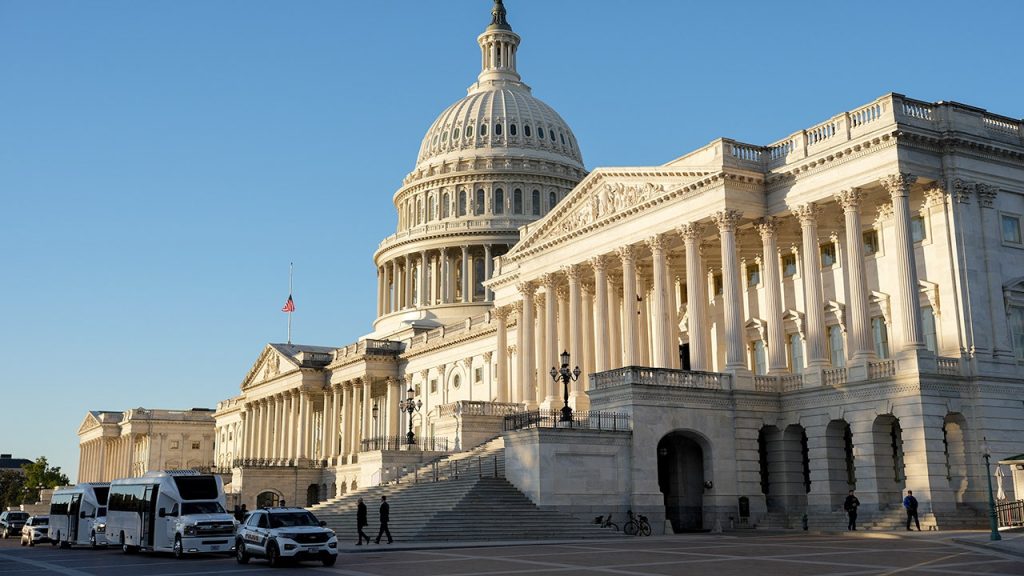Democrats Grapple with Fallout from Historic Government Shutdown
In the wake of a record-breaking 43-day government shutdown, Democrats find themselves facing difficult questions about the value of their strategy and the leadership of Senate Minority Leader Chuck Schumer. The standoff, which ended without securing the healthcare subsidies Democrats had demanded, has exposed fractures within the party as several Democratic senators broke ranks to join Republicans in voting to reopen the government. This defection has been widely interpreted as a significant blow to Schumer’s leadership. Despite this setback, many Democrats continue to lay blame for the shutdown squarely at the feet of Republicans and President Donald Trump, refusing to criticize their own party’s handling of the situation.
When pressed by reporters about whether the shutdown was worth it, Democratic lawmakers largely sidestepped direct answers, instead pivoting to criticize Republicans. Senator Richard Blumenthal of Connecticut expressed his disappointment, saying, “I’m disappointed and angry that Republicans forced a false and impossible choice between healthcare insurance and reopening the government.” This sentiment was echoed by Representative Robert Garcia of California, who insisted Democrats “should absolutely continue fighting for healthcare,” and by Representative Sarah McBride of Delaware, who declared that “Republicans now own this healthcare crisis.” The consistent message from Democratic lawmakers has been that Republicans should be held accountable for what they describe as an ultimatum between reopening the government and providing affordable healthcare.
The shutdown’s resolution has revealed a growing divide between Democratic leadership and the party’s progressive wing. Seven Democratic senators and six House Democrats ultimately voted to reopen the government without extending the pandemic-era Obamacare subsidies that had been a central Democratic demand since the shutdown began on October 1. This intra-party revolt prompted fierce criticism from progressive voices like Representative Alexandria Ocasio-Cortez, who questioned what the shutdown had accomplished given its impact on federal workers and SNAP recipients. “We cannot enable this kind of cruelty with our cowardice,” she stated, in what many interpreted as a rebuke of Schumer’s decision to end the standoff without securing healthcare guarantees. The tension highlights a fundamental disagreement within the party about when to compromise and when to hold firm.
The shutdown’s end offers only temporary relief, as the stopgap funding bill passed last week keeps federal spending at current levels only through January 30. This short-term measure is intended to give Congress additional time to negotiate a longer-term appropriations package for fiscal year 2026. The looming deadline raises concerns about the possibility of another shutdown if consensus cannot be reached. When asked about this prospect, Senator Alex Padilla of California avoided directly addressing whether another shutdown might occur, instead emphasizing that securing healthcare changes “remains the focus, that remains the work ahead of us still.” Similarly, Senator Blumenthal expressed hope that another shutdown could be avoided but warned that Republicans would be to blame if they failed to deliver on their promise of a vote on extending healthcare subsidies.
As part of the agreement to reopen the government, Senate Democrats received a promise for a separate vote on extending healthcare subsidies in December. Senator Mark Kelly of Arizona expressed anticipation for this vote, suggesting it would force Republicans to go on record regarding healthcare guarantees. This upcoming vote represents a potential opportunity for Democrats to achieve a partial victory despite ending the shutdown without immediate healthcare provisions. However, whether such a vote will result in actual policy changes remains uncertain, especially given the divided control of Congress. The White House, meanwhile, has adopted a different perspective on the shutdown, with spokesperson Abigail Jackson stating, “Democrats shut down the government and inflicted great pain on the American people because they wanted to use struggling families as ‘leverage’ for their far left agenda.”
The aftermath of this historic shutdown leaves both parties positioning themselves for the political fallout while Americans attempt to make sense of what was gained or lost during the 43-day impasse. For Democrats, the challenge now becomes maintaining unity within their ranks while continuing to advocate for healthcare priorities. The party must balance the progressive wing’s desire for unwavering commitment to key issues against the pragmatic concerns of members who ultimately voted to end the shutdown. As January approaches with its new funding deadline, lawmakers from both parties will need to navigate these tensions while avoiding another costly government closure. The American public, having endured the longest shutdown in U.S. history, will undoubtedly be watching closely to see if their elected officials can find a more productive path forward in the coming months.















